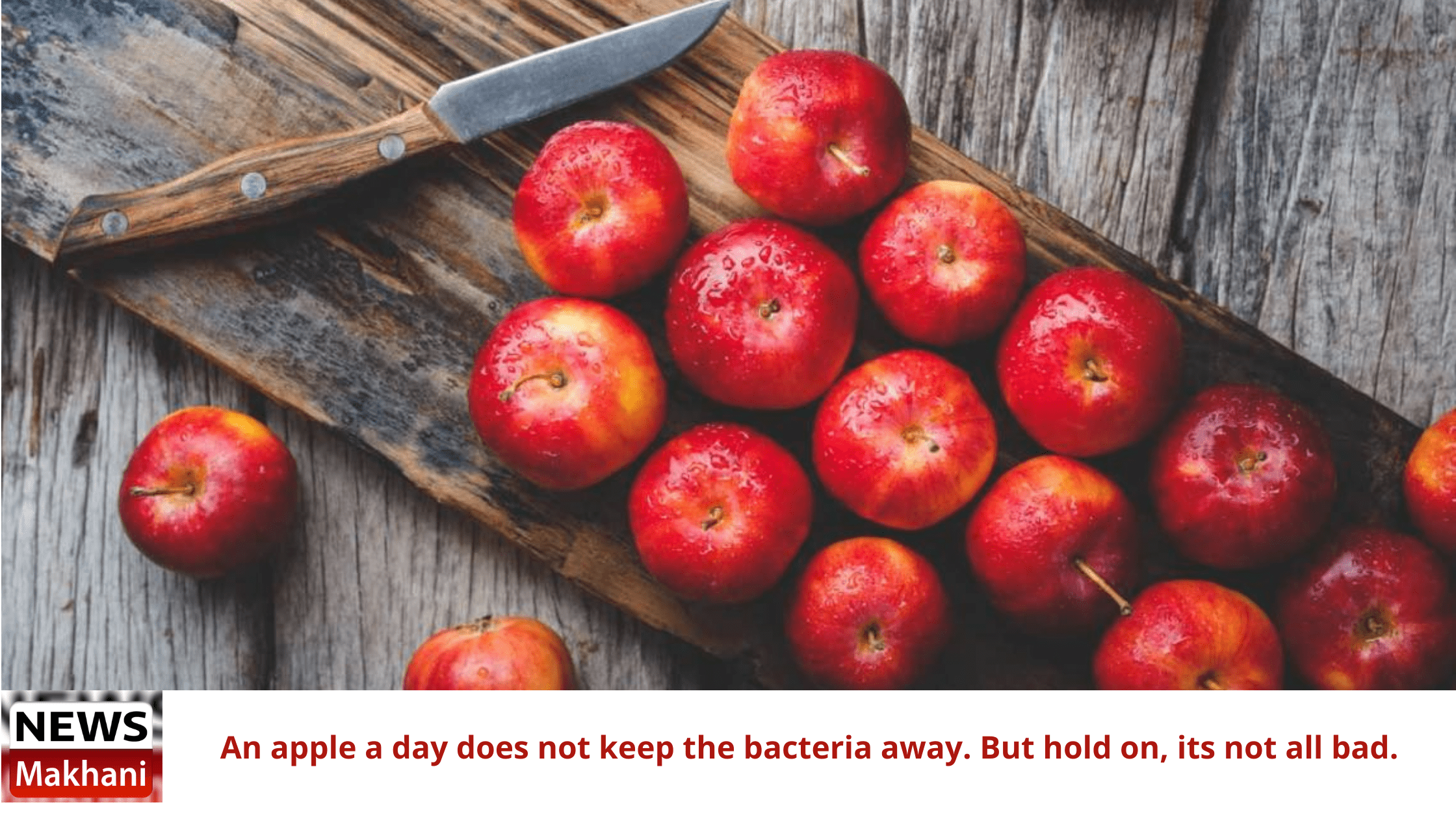What if we told you that apples contain not just fibre and nutrients but also around 100 million bacteria!
Whether these bacteria are good or not depends on how they are grown. Researchers prefer organic apples over conventional apples.
Professor Gabriele Berg from Graz University of Technology in Austria said, “The bacteria, fungi and viruses in our food transiently colonise our gut. Cooking kills most of these, so raw fruit and vegetable are particularly important sources of gut microbes.”
The study compared the bacteria in conventional store-bought apples with those in visually-matched fresh organic ones. As per the results it was found that the organic apples and the conventional apples were occupied by similar numbers of bacteria.
Berg informed, “Putting together the average for each apple component, we estimate a typical 240-gram apple contains roughly 100 million bacteria.”
The majority of the bacteria are in the seeds, with the flesh accounting for most of the remainder.
So, if you discard the core, your intake falls to nearer 10 million.
The question is: Are these bacteria good for you?
“Freshly harvested, organically-managed apples harbour a significantly more diverse, more even and distinct bacterial community, compared to conventional ones,” explained Berg.
Specific groups of bacteria known for health-affecting potential also weighed in favour of organic apples.
Methylobacterium, known to enhance the biosynthesis of strawberry flavour compounds, was significantly more abundant in organic apples, “especially on peel and flesh samples, which in general had a more diverse microbiota than seeds, stem or calyx”, said the researchers.
The results also mirrored findings on fungal communities in apples. Birgit Wasserman, lead author of the study said, “Our results agree remarkably with a recent study on the apple fruit associated fungal community, which revealed specificity of fungal varieties to different tissues and management practices.”

 English
English






